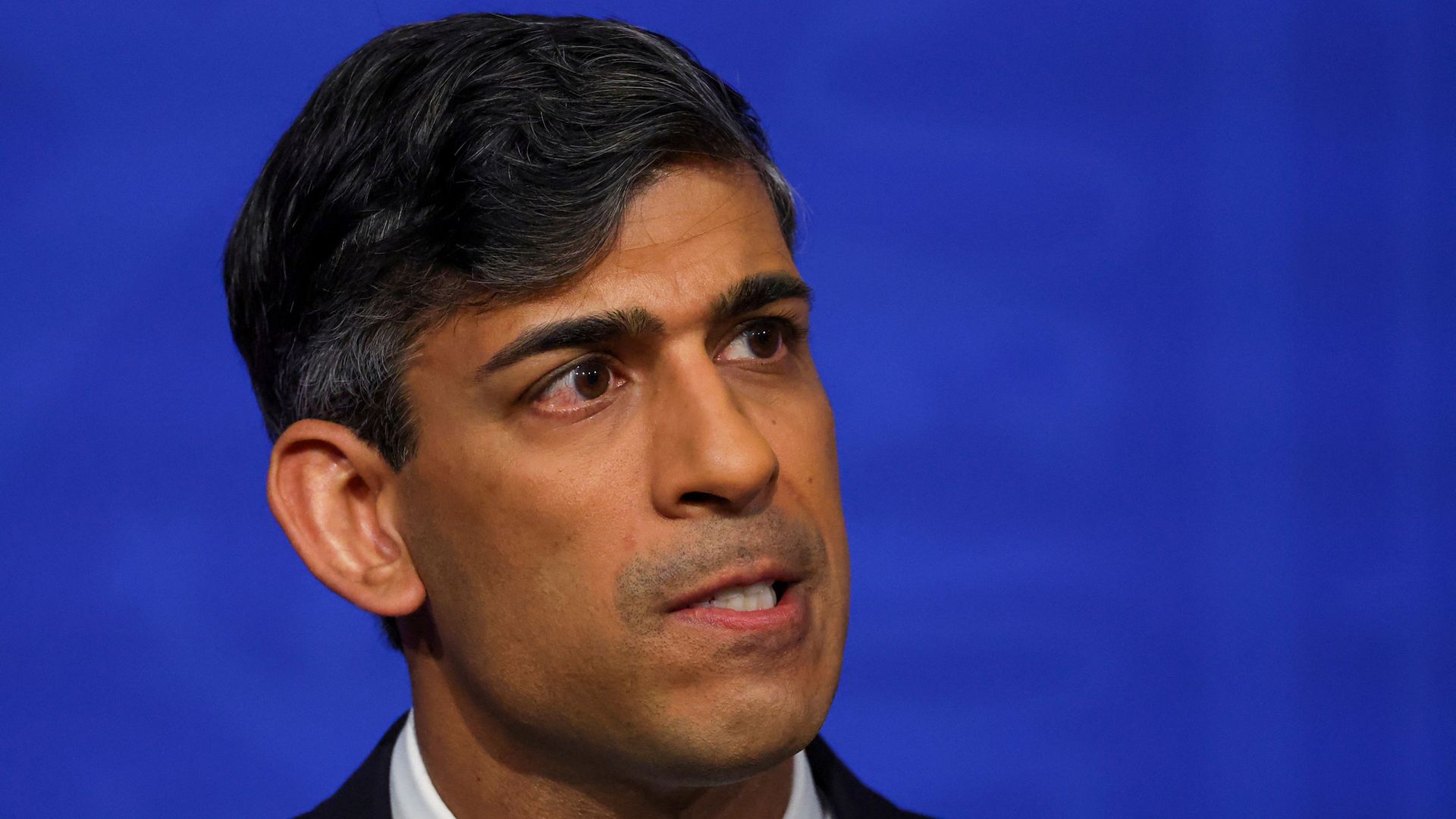It was shortly after midnight when peers in the House of Lords finally ended their long fight against the government’s Safety of Rwanda Bill.
So in the end there was no need for sleeping bags or camp beds and dire threats made by government whips of votes at 3am or even later never materialised.
It had been a day that began with Rishi Sunak demanding that MPs and peers sat through the night if necessary until the bill became law.
Please use Chrome browser for a more accessible video player
And an hour or so before the final retreat by peers, the Commons had voted by a majority of 75 to throw out the last remaining Lords amendment to the bill.
That was on a monitoring process on whether Rwanda is a safe country, as the government claims. This amendment was driven not so much by Labour peers but by the lawyers – including many retired judges – in the Lords.
Throughout this long battle in the Lords, the legal fraternity in the Upper House has had a doughty shop steward in Lord Carlile, a top KC who was once a Liberal Democrat MP until he fell out with Nick Clegg, and is now a cross bencher.
But the key, pivotal moment during the latest round of ping pong between Lords and Commons came when the government made a major concession on demands for an exemption from deportation to Rwanda for Afghan interpreters fleeing the Taliban.
Rwanda bill to become law after late night row between government and Lords
Politics latest: Sunak finally gets his way – bill condemned as ‘significant threat to the rule of law’
Children under six being manipulated into sexual abuse, according to ‘deeply disturbing’ report
“The government recognises the commitment and responsibility that comes with combat veterans, whether our own or those who have shared courage by serving alongside us,” said Lord Sharpe of Epsom.
And he pledged: “We will not let them down.”
Fine words. But why did it take the government so long to make this concession, one that supporters and opponents of the bill agreed was a no brainer? Labour peers claim it was offered by ministers last week but vetoed by No. 10.
Read more:
Rwanda bill to become law after late night row between government and Lords
Latest reaction after government’s Rwanda bill passes Lords
How many asylum seekers does the UK remove and how much of an impact will the policy have?
An amendment proposed by the former Labour defence secretary Des Browne could have been accepted by the government weeks ago.
And after Lord Sharpe’s pledge, Lord Browne told peers: “The government created this problem that has caused at least nine of those who fought for us to be executed by the Taliban because promised safe passage never appeared…
“They left these people behind, they messed up any subsequent evacuation plan. This is the third opportunity competently to do the right thing. Why should I trust them now?”
Why indeed? Promises made by government ministers at the despatch box when facing defeat in a vote often aren’t worth the paper they’re written on.
Lord Browne has proved himself to be a tenacious campaigner on this issue, however, and won’t let the government renege on Lord Sharpe’s pledge.
And what about the length of time the government has taken to get this bill – contentious as it is – through parliament?
Please use Chrome browser for a more accessible video player
Keep up with all the latest news from the UK and around the world by following Sky News
Back in November, Rishi Sunak declared this was emergency legislation. That was five months ago. The government had the opportunity to wrap up proceedings on the bill last week, but chose not to.
Why not? The PM gave the game away at his news conference when he blamed Labour for the delays.
Minutes after the bill completed its passage through Parliament, Labour dismissed the flights to Rwanda policy as an expensive gimmick and election stunt.
The lone Tory rebel on the final day of debates on the bill, on the other hand, told Sky News he now wants to make it work. Good luck, as they say, with that.
The PM’s task now, as he battles to lead a Tory recovery ahead of the general election, is to get planes in the air and on their way to Rwanda.
And now the battle in parliament is over, he’ll no longer be able to blame his political opponents if the policy doesn’t take off.




